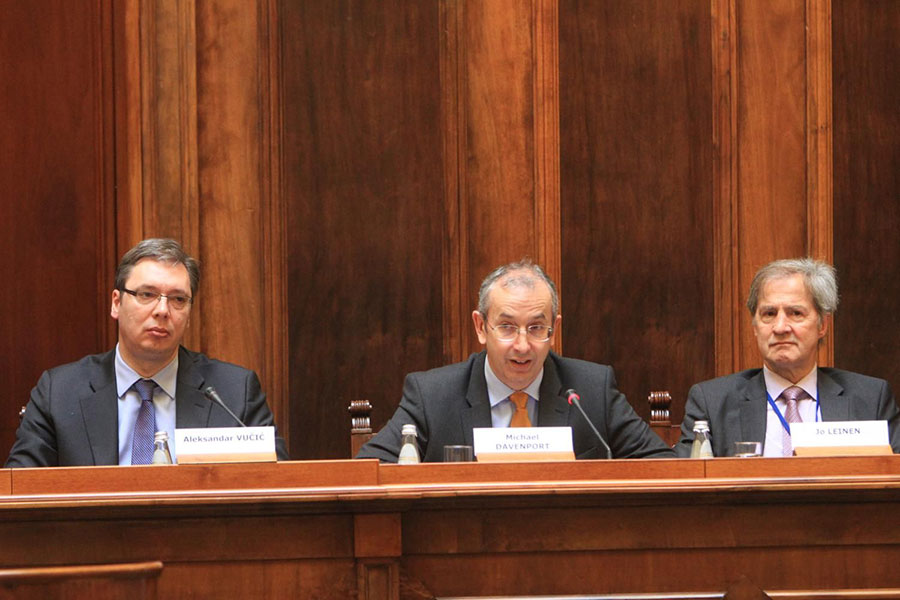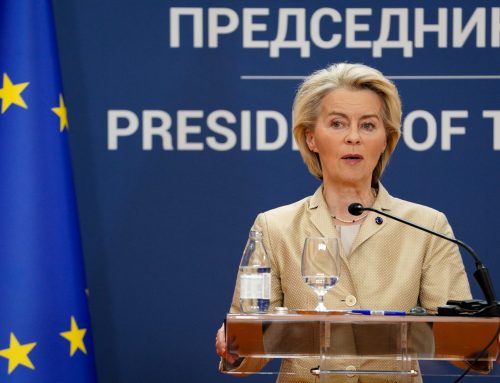European Union will increase its support for civil society within IPA funds from 2 to 3.5 per cent of the total amount allocated so far, said Head of the EU Delegation to Serbia Michael Davenport at the International Conference of European Movement in Serbia “Civil Society and Beyond – Joint Dialogue on the European Path“.
Ambassador Davenport said that the importance of civil society had been highlighted within EU Enlargement Strategy and added that citizens had the right to good public governance but should also make effort to influence policy making.
“We currently support 50 regional networks engaged in public policy advocacy, and more than 250 CSOs from EU candidate countries,“ he said and added that within previous IPA cycle, civil society had been allocated with EUR150 million.
Ambassador recalled the recently launched project aimed at strengthening civil society in Western Balkans for the monitoring of public administration reform.
Serbian Prime Minister Aleksandar Vucic said he changed his attitude towards civil society and called on all organisations to engage further in fight against corruption, in particular.
“My opinion is based primarily on the extent to which civil society contributes to the development of Serbia. I am not hiding that my opinion has changed and I am proud of it,“ said Vucic adding that his opinion used to be based on his personal relations, inter alia, with leaders of such organisations.
 He said civil society occupied a special place in regional cooperation and reminded that these organisations were more often than not the only bridge between the war-torn ex-Yugoslav countries.
He said civil society occupied a special place in regional cooperation and reminded that these organisations were more often than not the only bridge between the war-torn ex-Yugoslav countries.
“Civil sector has a special role in fight against corruption. I call on civil society to help us, especially in the follow-up to the opening of Chapter 23 within EU accession negotiations,“ said Prime Minister and added that Serbia accounted for nearly 27,000 citizens’ associations and civil society organisations.
Minister of European Integration Jadranka Joksimovic said Serbia aimed at European integration in order to regulate the country, while Serbian Assembly Speaker Maja Gojkovic said there was a political consensus about the necessity to join the EU and noted that civil society support is necessary in order to advance in that process which Serbia planned to finish by 2020.
President of European Movement in Serbia Mihailo Crnobrnja said goal of the International European Movement was to facilitate and speed up EU negotiating and accession processes, whereas the goal of the conference was to take stock of the progress and get inputs on how to strengthen the influence of European Movement in challenging times for the EU.
President of European International Movement Jo Leinen said there was no alternative to united Europe in 21 century and that the unification of Europe allowed Europeans to unanimously fight for their common European interests. He recalled that next week would mark 60 years of the Treaty of Rome which led to the establishment of the EU and assessed that “our generation had the duty to continue the unification.“




